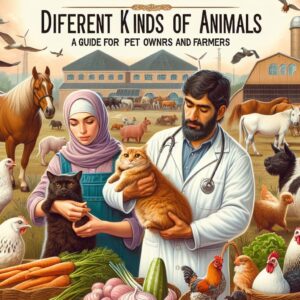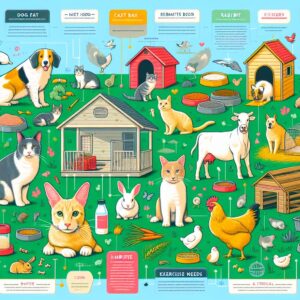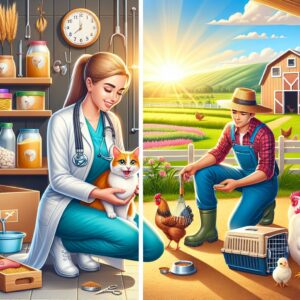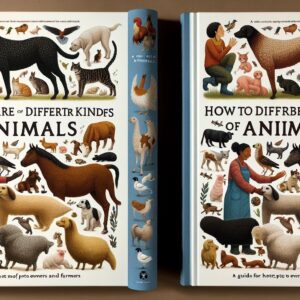Whether you are a passionate pet owner or a hardworking farmer, caring for animals is a big responsibility. From ensuring their well-being and health to providing them with a safe and nurturing environment, optimal animal care is essential for their happiness and our own. In this comprehensive guide, we will explore the fundamental aspects of animal care for both pet owners and farmers, helping you understand the unique needs and care requirements of different types of animals.
Understanding Animal Health
Before diving into the specific needs of various animals, it is crucial to recognize the importance of animal health. Just as humans require routine medical checkups, animals also benefit from regular veterinary care. Pet owners should schedule routine visits to a local veterinarian to ensure their furry companions are up to date with vaccinations and receive necessary preventive treatments such as flea and tick control.
Farmers, on the other hand, often have a larger number of livestock to care for. Regular checkups and vaccinations are equally important for livestock animals as they are susceptible to diseases. By collaborating with veterinarians who specialize in livestock care, farmers can maintain a healthy herd and boost productivity.
Pet Care: Cats, Dogs, and Small Animals
When it comes to pet care, cats, dogs, and other small animals require love, attention, and routine maintenance. Cats and dogs thrive when provided with a balanced diet, regular exercise, and mental stimulation. Pet owners should ensure their furry friends have access to clean water, quality food, and are provided with a safe and comfortable environment.
Grooming is another crucial aspect of pet care. Regular brushing and grooming sessions help prevent matting and keep your pet’s coat shiny and healthy. Trimming nails and cleaning ears are also essential tasks that contribute to overall pet hygiene.
Small animals like rabbits, hamsters, and guinea pigs require specialized care. A clean and safe living environment, proper nutrition, and daily exercise are key elements to their well-being. Understanding the specific needs of each small animal species and providing the appropriate care will help them thrive.
Farm Animals: Livestock and Beyond
For farmers, the well-being of their livestock is paramount. Providing animals with appropriate shelter, adequate space to roam, and a balanced diet is crucial. Understanding the different nutritional requirements of various livestock animals is essential to maintain their health. Consultation with a livestock nutritionist or veterinarian is recommended to formulate optimal feed compositions for your specific herd.
Additionally, it is important to keep an eye out for common signs of illness or injury in livestock animals. Regular observation allows early detection, leading to prompt action to prevent further complications and reduce the risk of contagion for other animals. Farmers should also be diligent in implementing biosecurity measures to minimize the spread of diseases among their livestock.
Caring for Injured Animals in the Wild
In some instances, we may come across injured animals in the wild that require our assistance. While it’s important to remember that wild animals are best left in their natural environment unless they are in immediate danger, there are situations where intervention is necessary. Contacting local wildlife rescue organizations or animal control authorities should be the first step to ensure the injured animal receives proper medical care.
When providing care to injured wildlife, it is imperative to prioritize both human and animal safety. Handling injured animals may require specialized knowledge and training; hence, involving professionals in the rescue process is highly recommended.
Conclusion
Caring for animals, whether as pet owners or farmers, entails understanding their unique needs and providing appropriate care to ensure their well-being. From routine veterinary visits and preventive treatments to maintaining suitable living conditions and proper nutrition, every aspect contributes to overall animal health. By following these guidelines and seeking professional advice when needed, we can create a world where animals are nurtured, protected, and thrive alongside us.



